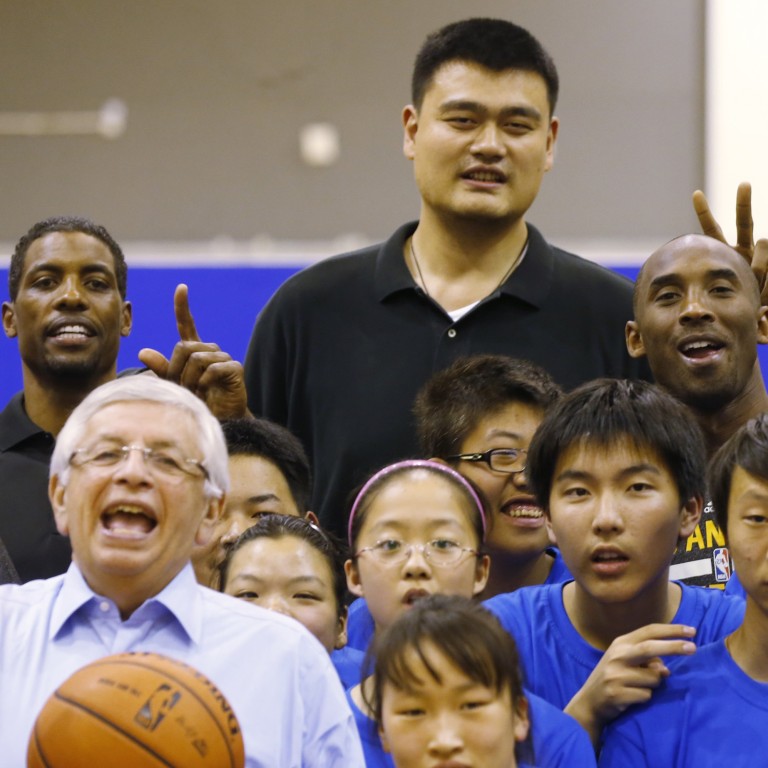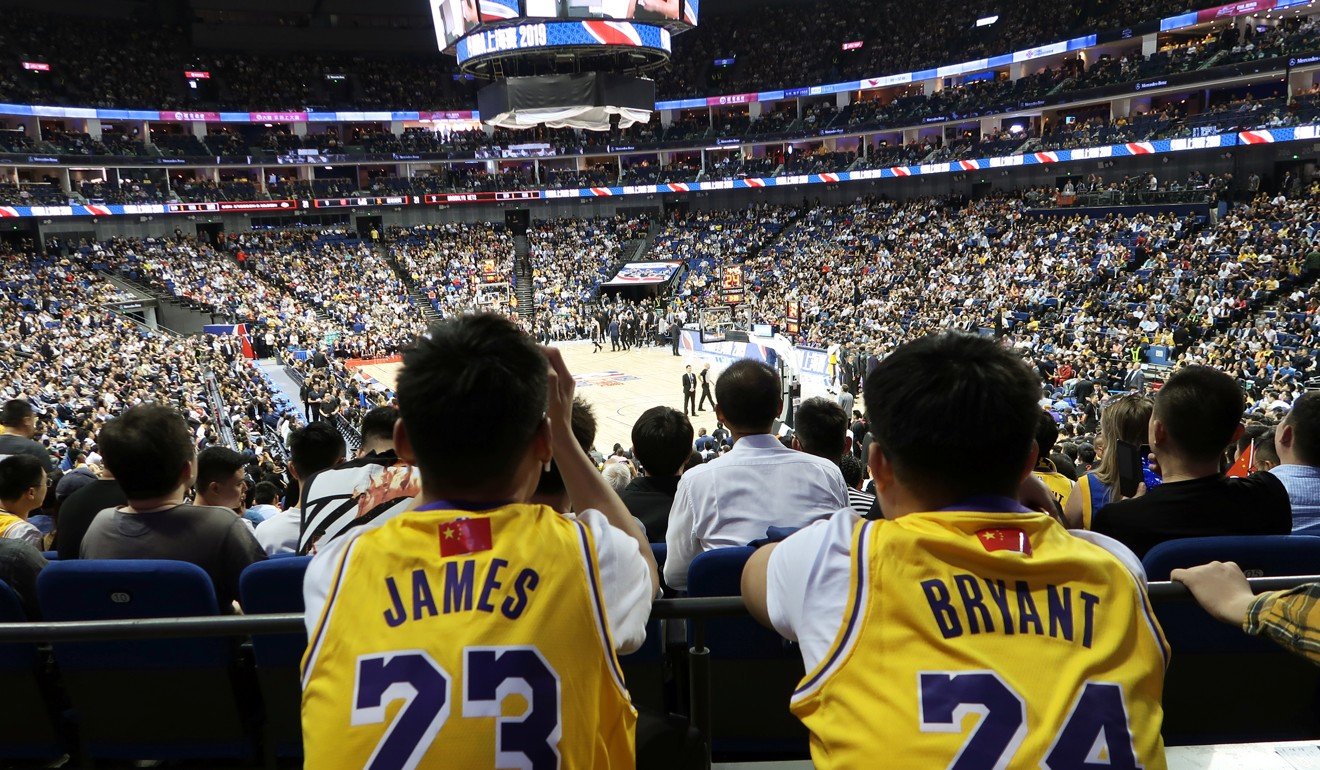
Kobe Bryant’s death is China’s loss as kindred spirit is mourned in ‘second home’
- The shocking death of the NBA icon will be felt heavily in China, a place he has referred to as his ‘second home’
- LA Lakers star first visited China in 1998 and he has been mobbed ever since but legacy includes giving back through his charity
The shocking and tragic deaths of basketball icon Kobe Bryant, his 13-year-old daughter Gianna and seven others in a helicopter crash had a profound impact globally. However, the depth of the tragedy is almost eclipsed by the irony. Less than 16 hours earlier in Philadelphia, Los Angeles Lakers superstar LeBron James – playing for the very same team that Bryant led to five NBA titles and in the same city where he rose to stardom as a high school wunderkind – passed Kobe to take over the number-three spot on the NBA’s all-time scoring list.
Even James was overcome by the irony. “The story is just too much,” he said. “It doesn’t make sense. Now I’m here in a Lakers uniform in Philadelphia where he’s from, where the first time I ever met him. It’s surreal.” Bryant would send out a congratulatory tweet to James and in an even more surreal development, 12 hours later he was gone.
Although he retired in 2016, Bryant’s profound legacy is still very fresh and nowhere more so than in China, where he has long been the country’s most popular foreign athlete. At the 2008 Beijing Olympics, the rapturous reception for Bryant was unprecedented and even prompted his US teammate James, arguably the most well-known professional athlete in the world, to claim: “I thought I was famous, until I got here with Kobe.”
The roots of Kobemania on the mainland have been deeply planted since his first trip to China in 1998. “I have been coming back here almost every year since,” Bryant said on a visit to China in October. “It's always fun to come back. It almost feels like a second home now.”
Born in Philadelphia, Bryant moved to Italy when he was six and quickly became immersed in the new culture. “Growing up overseas, you grew up with the understanding of adapting and being curious of other cultures, their history, philosophy and food,” he said.
“When I first came to China, I was open and not apprehensive. I was excited to learn because that is always how I had grown up. So I think having that openness and curiosity about Chinese culture endeared me to them in some respects.”
Kobe Bryant is hugely popular in the mainland even outdoing Yao Ming
Bryant’s efforts went well beyond simple marketing and commercial ventures. His Kobe Bryant China Fund charity set up in 2009 has raised millions towards education, sport and cultural programmes for Chinese youth.
Despite his obvious athletic gifts, Bryant has always been an intuitive and intellectual player. He was quick to recognise the drawbacks of China’s rote learning system, where children are primarily taught to memorise as opposed to think and react, to the spontaneous flow of competition.
“When I first came out here children were very structured and as I came back more and more, I said, OK these are the basic fundamentals of the game,” he said. “Now, how do I teach them imagination and to rely on instincts and find individualism within the structure? That’s a bigger cultural question and that’s how the game, any game, has more relevance and significance to life.”
In 2013, Bryant’s Lakers came to play two exhibition games in China against the Golden State Warriors. The games sold out six months ahead because of Kobe but by the time October rolled around, he was unable to play because of a torn Achilles tendon.
Still, Bryant insisted on dutifully limping over to China and was mobbed everywhere. Sensing the end was near in his brilliant career, Bryant wistfully mused about the lack of cynicism among China fans as opposed to Americans. “We’re a little bit more desensitised by celebrities [in the US],” he said. “Out here, not so much. It’s something that’s kind of relatively new.”
In 2003, Bryant was charged with sexual assault and while the charges were eventually dropped in the high-profile case, his brand became totally toxic in the US. But in China, where his trial received virtually no coverage, Bryant’s popularity hardly waned. He never forgot that and they never forgot him.

Despite the fact that China is preoccupied by the outbreak of the deadly coronavirus and the Lunar New Year, the death of Bryant will hit hard. The unprecedented fanaticism that has seen adults openly weep on TV when discussing meeting Kobe will now be replaced by overwrought outpourings of grief as they mourn their favourite adopted son.
At a time when China needs all the positive and understanding foreign voices it can muster, they have lost a kindred spirit with a huge global profile. They lost someone who had an insatiable curiosity and profound respect for their culture. They lost someone whose bond grew stronger over time. You can’t replace a Kobe Bryant in China. You can only honour his legacy.

